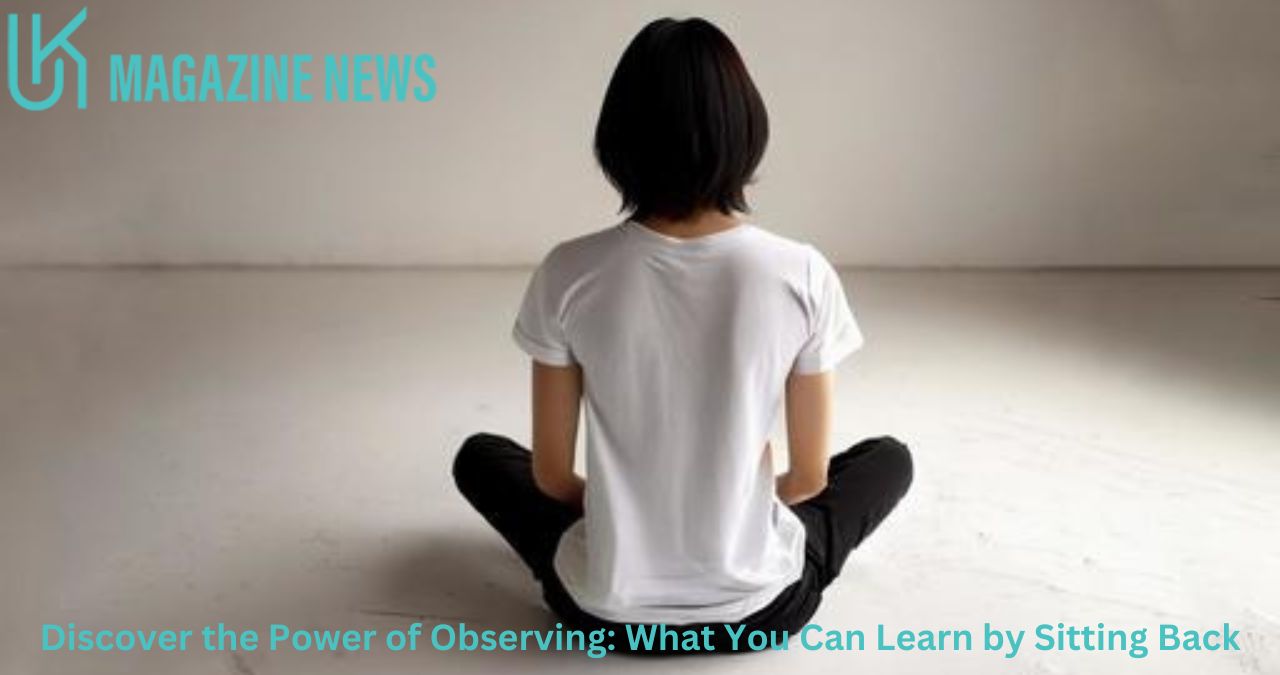In our fast-paced, hyper-connected world, the art of simply sitting back and observing has become increasingly rare. Yet, this seemingly passive activity holds immense power and potential for personal growth, creativity, and understanding. By embracing the practice of observation, we can unlock insights that are often overlooked in the hustle and bustle of daily life. This article explores the profound benefits of observing, offering insights into what we can learn by taking a step back and truly watching the world around us.
The Essence of Observation
At its core, observation is the act of noticing and paying attention to details in our environment, interactions, and inner experiences. It involves more than just seeing; it encompasses listening, feeling, and understanding. Through mindful observation, we engage all our senses, allowing us to gather comprehensive information that can inform our thoughts and actions.
Enhancing Self-Awareness
One of the most significant benefits of observation is the enhancement of self-awareness. By observing our thoughts, emotions, and behaviors without judgment, we gain deeper insights into who we are. This self-reflection helps identify patterns, triggers, and areas for personal growth. For instance, observing how we react in stressful situations can reveal coping mechanisms that either serve us well or need adjustment. Increased self-awareness fosters emotional intelligence, enabling better relationships and decision-making.
Boosting Creativity and Problem-Solving
Creativity often springs from the ability to see things differently. When we take the time to observe our surroundings and experiences, we can draw connections and inspire innovative ideas. Artists, writers, and thinkers frequently rely on keen observation to fuel their work. By sitting back and watching, we allow our minds to wander and make unexpected associations, enhancing our creative potential.
Moreover, observation is a critical component of effective problem-solving. By thoroughly understanding a situation through careful observation, we can identify root causes rather than just addressing symptoms. This comprehensive understanding leads to more sustainable and effective solutions.
For more insights on boosting creativity through observation, visit importantcool .com.
Improving Interpersonal Relationships
Observation plays a crucial role in building and maintaining healthy relationships. By attentively observing others’ body language, facial expressions, and tone of voice, we can gain a deeper understanding of their emotions and intentions. This heightened perception fosters empathy, allowing us to respond more thoughtfully and compassionately.
Furthermore, observing our interactions helps us recognize communication patterns and areas where we can improve. Whether it’s being more patient, active listening, or expressing ourselves more clearly, the insights gained from observation can significantly enhance our interpersonal skills.
Cultivating Mindfulness and Reducing Stress
Incorporating observation into our daily lives is a form of mindfulness, a practice that promotes present-moment awareness. Mindfulness through observation can reduce stress by grounding us in the here and now, preventing our minds from ruminating on past regrets or future anxieties. Focusing on the present moment helps us appreciate the small joys and intricacies of life that often go unnoticed.
Regular observation can also serve as a meditative practice, calming the mind and fostering a sense of inner peace. By deliberately slowing down and observing, we create space for relaxation and mental clarity, counteracting the effects of a hectic lifestyle.
Gaining Insights from Nature
Nature is one of the most rewarding subjects of observation. Spending time outdoors and attentively observing the natural world can offer countless lessons. The changing seasons, the behavior of animals, and the intricate patterns of plants all provide examples of resilience, adaptation, and interconnectedness.
Observing nature encourages us to slow down and appreciate the simplicity and complexity of life. It can inspire sustainable living practices and a deeper respect for the environment. Additionally, studies have shown that time spent in nature can improve mental health, boost creativity, and enhance overall well-being.
Enhancing Learning and Knowledge
Observation is a fundamental aspect of learning. Whether in formal education or everyday experiences, paying close attention helps us absorb and retain information more effectively. By observing experiments, demonstrations, or real-life applications, we can deepen our understanding and make connections between theoretical concepts and practical use.
Moreover,learn to sit back and observe. not everything need – tymoff allows us to acquire new skills by watching others. From learning a musical instrument to mastering a new language, observing experts can provide valuable insights and techniques that accelerate our own proficiency.
Strengthening Analytical Skills
Regular observation hones our analytical skills by training us to notice details, recognize patterns, and discern underlying principles. This enhanced analytical ability is invaluable in various aspects of life, including academics, professional environments, and personal decision-making.
For example, in a work setting, keen observation can improve project management by identifying potential issues early and understanding team dynamics. In personal finance, observing spending habits can lead to better budgeting and financial planning. The ability to analyze situations thoroughly leads to more informed and effective choices.
Encouraging Patience and Delayed Gratification
In a society that often values instant results, observation teaches patience and the importance of delayed gratification. By sitting back and taking the time to observe, we learn to appreciate the process rather than just the outcome. This shift in mindset can lead to more sustainable and fulfilling achievements.
Patience cultivated through observation also enhances our ability to cope with challenges. It allows us to approach problems methodically, without succumbing to frustration or impulsive actions. This measured approach can lead to more thoughtful and successful resolutions.
Practical Ways to Incorporate Observation into Daily Life
- Mindful Walking: Take a walk without any distractions. Pay attention to the sights, sounds, and smells around you. Notice the details of your environment and how they change as you move.
- Journaling: Keep a journal dedicated to your observations. Record what you notice each day, whether it’s about yourself, others, or your surroundings. Reflecting on these entries can reveal patterns and insights.
- Meditation: Practice meditation with a focus on observation. Sit quietly and observe your thoughts and feelings without judgment, allowing them to come and go naturally.
- Artistic Expression: Engage in activities like drawing, painting, or photography that require careful observation. These creative outlets can enhance your ability to notice and appreciate details.
- Active Listening: In conversations, practice active listening by fully focusing on the speaker without planning your response. Observe their non-verbal cues and the nuances of their message.
- Nature Engagement: Spend time in nature, observing the behavior of animals, the growth of plants, and the changing seasons. Let these observations inspire and teach you.
Conclusion
In a world that often encourages constant activity and rapid response, the power of observation stands out as a valuable and transformative practice. By sitting back and truly observing, we open ourselves to a wealth of knowledge and understanding that can enhance every aspect of our lives. From boosting self-awareness and creativity to improving relationships and reducing stress, the benefits of observation are profound and far-reaching.
Embracing the power of observation requires intentionality and patience, but the rewards are well worth the effort. Whether through mindful walking, journaling, or simply taking a moment to watch the world around you, incorporating observation into your daily routine can lead to deeper insights, greater fulfillment, and a more enriched existence. So, next time you find yourself caught in the rush of life, consider taking a step back. Sit quietly, observe, and discover the hidden lessons that await you.





